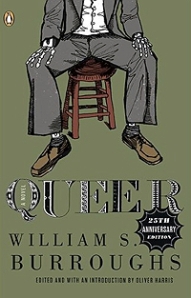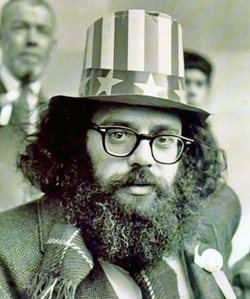 We started with Queer, and talked about how the introduction affected our reading (the murder of his second wife, and writing as inoculation).
We started with Queer, and talked about how the introduction affected our reading (the murder of his second wife, and writing as inoculation).
Both Brian and Kelvin talked about space: Kelvin found it strange that Mexico is described as “oriental,” while Brian noted that it is an expat novel, happening in public, homosocial space with no sense of home. Signals of Lee’s status as an outsider abound.
We questioned on how to read the Arab human trafficking hallucination/fantasy (p. 67) and Lee’s predilection for the Aryan type: racism or the unreliability of narrator?
On the non-representation of women, we concluded there is an aversion of femininity and effeminacy in the novel. But strangely, when in general men overcompensate their insecurity and homosexuality by being hyper-masculine, we didn’t find it to be the case for Lee.
Aaron saw the two endings as hopelessness of human connection, and indicative of human isolation.
 As a transition to Howl, we talked about the similarities between the two books–drugs. Brian commented the Beat generation used drugs to alter consciousness as a way to overcome existential ennui, to rebel against the bourgeois and consumerism, to break away from the madness of monotony.
As a transition to Howl, we talked about the similarities between the two books–drugs. Brian commented the Beat generation used drugs to alter consciousness as a way to overcome existential ennui, to rebel against the bourgeois and consumerism, to break away from the madness of monotony.
Kelvin saw Howl as a manifesto, as opposed to Queer as a quest. While Queer is pessimistic, Kelvin claimed there is hope in Howl. There is a representation of community in Howl.
We spiraled into a discussion of whether Howl is hopeful or not. We didn’t convinced Brian who argued that meeting Walt Whitman in a supermarket is how low America has fallen: Whitman’s fruits hanging on trees (nature) has become fruits in supermarket (consumerism). “It is,” Brian said, “potential we squandered.”
Thanks, Timmy and Jolynn, for beautifying Mcdonald’s.

